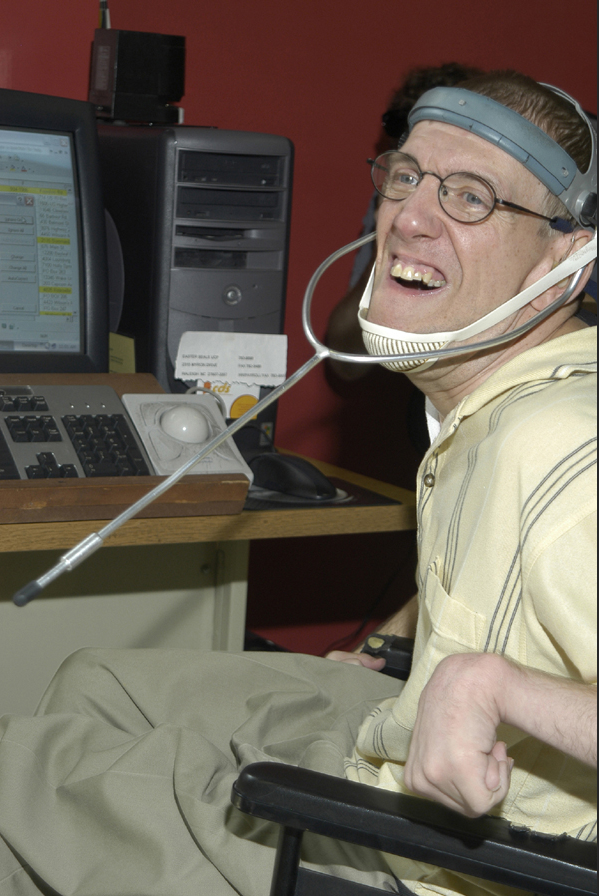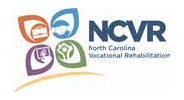 Adaptive computers often include a stylus with ball grip and a steady mouse.
Adaptive computers often include a stylus with ball grip and a steady mouse.
Assistive Technologies & Accommodations
There are a variety of assistive technologies available to improve accessibility and equip people with disabilities to better perform their job functions. Assistive equipment and accommodations may include:
- Computer adaptations including a stylus with ball grip and steady mouse
- A scribe pen that sends what you write to your smart phone or tablet
- Desks with adjustable height levels to accommodate wheelchairs
- Vehicle modifications such as steering knobs, rings or floor mounted steering to accommodate prosthetic devices
- Software to magnify print and provide high-contrast computer screens
- Closed caption monitors to project hard-copy print materials onto a computer screen
Assistive technologies and accommodations are available to make employment a reality for people with disabilities. New technology and simple accommodations can be designed and installed at home, in car or office to improve accessibility and assist in fulfilling job requirements and are often paid for by the state.
In North Carolina, click here to contact the North Carolina Assistive Technology Program, part of the state’s Department of Health and Human Services, at www.ncdhhs.gov.



Popular Links
North Carolina Council on Developmental Disabilities
This project was supported, in part by grant number 2001NCSCDD-02, from the U.S. Administration for Community Living, Department of Health and Human Services, Washington, D.C. 20201. Grantees undertaking projects with government sponsorship are encouraged to express freely their findings and conclusions. Points of view or opinions do not, therefore, necessarily represent official ACL policy.